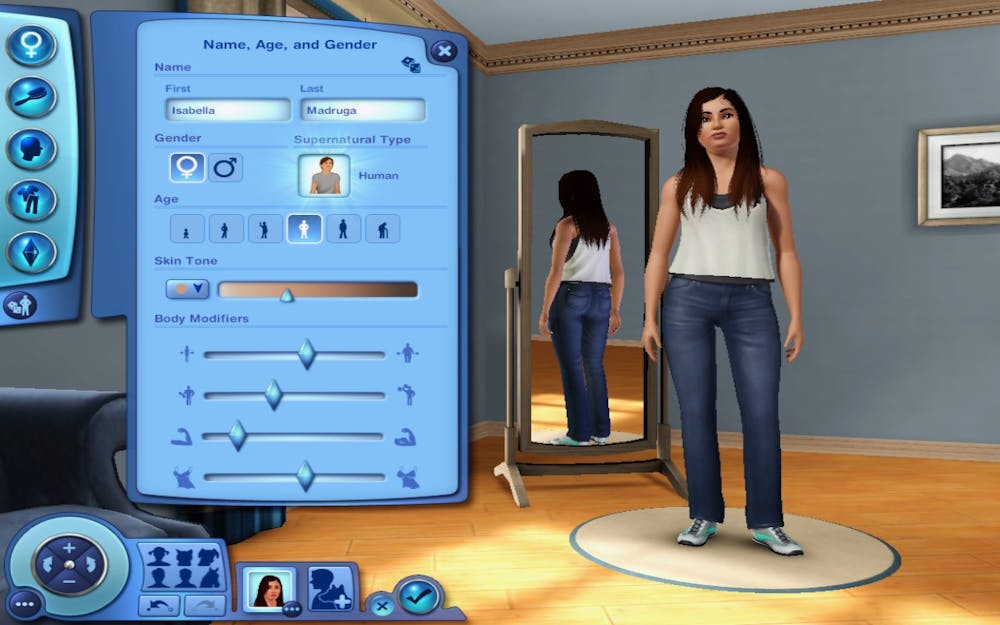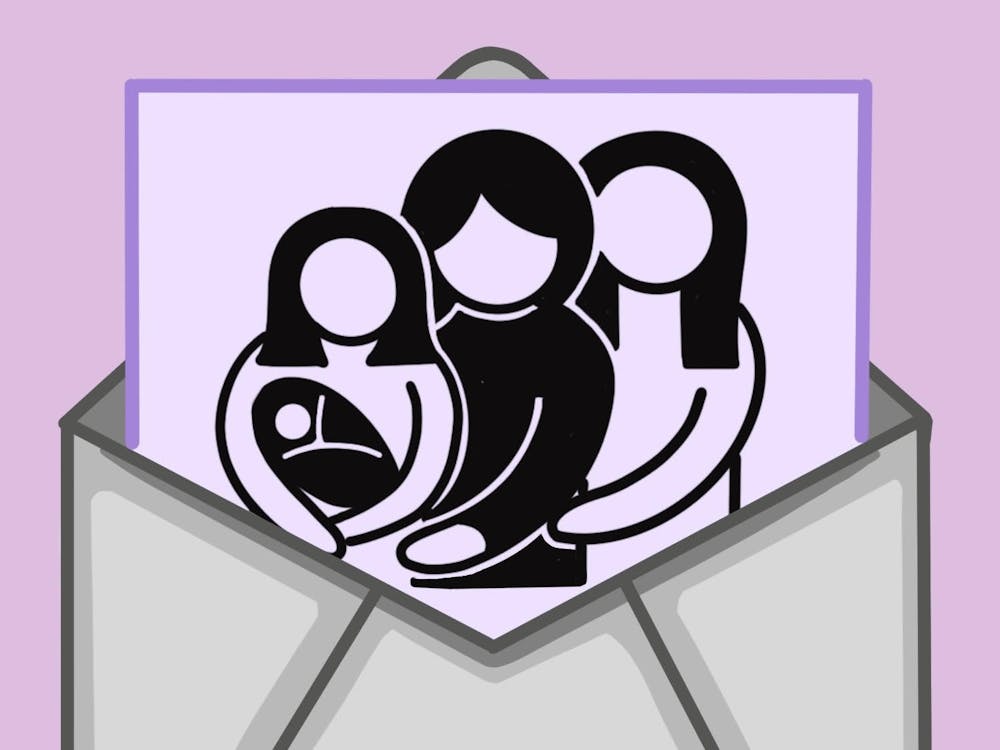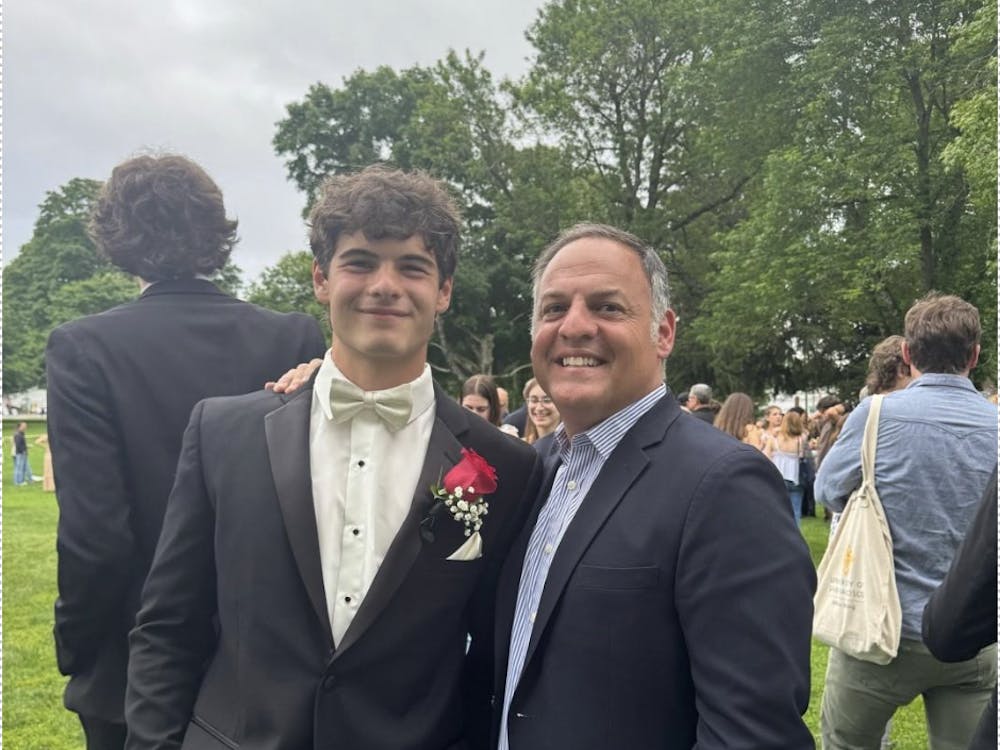
Growing up, I never really played — or liked — video games. I didn’t get the point. Watching my 4th-grade crush play Portal in his bedroom was boring. Okay, you get to the next level, and then you get to the last level and then what? You just play it all over again? Never mind the fact that I didn’t particularly enjoy games that hurt people violently. Games on the Wii were more tolerable, but then whenever I’d win (or more likely, lose), I’d think, “What’s next?”
I held this mindset until I walked into my cousins’ bedroom while I was visiting them for Christmas and saw them playing a computer game. I looked over their shoulders and saw them styling a character, which wasn’t anything new — I’d play dress-up games on Girlsgogames for hours each day. However, after they finished fighting over which shirt to give her, they clicked a button that took us to a loading screen (featuring music by Mark Mothersbaugh that has since been carved into my brain).
They proceeded to place their character into a house and play with her. We were called away for dinner, but as soon as we finished eating, we ran back to the computer. We gave her the best house, the most loving husband and the cutest kids. By the time I left, my cousins and I had created the perfect person and life for her. When I got in the car, the first thing I said to my parents was, “Can I please get The Sims?”
The Sims, if you don’t know, is a life simulation game with four installments in the series. It is in the top 10 of the best-selling video games of all time, selling more than 200 million copies. You may have heard of Simcity, released in 1989, but that focused on building and maintaining cities. In The Sims, there’s a bit of that, but the main focus is building lives. The sims don’t speak any sort of identifiable language, instead speaking “Simlish,” because game designer Will Wright wanted players to imagine conversations of their own to go with their chosen storylines (and also because it was cheaper). Described by Wright as a virtual version of a dollhouse, the game is just that: There are no rules, no ultimate objective you have to reach, and, best of all, there’s no end. No winning or losing, because it’s all up to you.
The creative freedom — that’s what I loved most about it. Admittedly, I have always been a sucker for stories, so my love of The Sims and graduating with a degree in Writing Seminars are natural outcomes. Additionally, coming from a tumultuous home made me appreciate the stability The Sims offered even more. I moved around more times than I can remember because my parents couldn’t afford the rising rents in the Bay Area, each working multiple jobs at the same time to keep us afloat. The one thing that was kept constant was my access to The Sims and the little worlds I built in there that I could control, where things didn’t have to change unless I wanted them to.
In high school, I was a loser. I had no friends, and because of that, barely joined any clubs. I had major imposter syndrome from being the financial aid kid at a private high school and felt like I was a nobody. In The Sims, I was an astronaut, a superstar actor, a star news anchor with a house that could rival the mansions of my peers, whose parents were CEOs and billionaire venture capitalists, all while I sat in the one-bedroom apartment I shared with my parents where I slept in the closet.
I was unstoppable. It made me feel powerful, like I could do anything.
And soon enough, that feeling transferred into reality. Yes, I can be an architect or a singer or a private investigator, because my sim can do it. Yes, I can be a blockbuster writer! What, like it’s hard? All I have to do is increase my writing skills, and then I get promoted and then I get more Simoleons (Sim currency). All I’ve wanted to be in life is a best-selling author, and in The Sims, I’ve achieved it five times over.
The Sims is the only video game I play, and I’m deep within the fandom. I know the backstories of the townies (playable NPC sims created by the developers), the Easter eggs and the discourse of which installment is the best. It has been a constant in a life that has been full of changes, good and bad, and I know it will be there for me when I need to imagine myself as a five-star chef or reenact a storyline for my newest short story idea.
Recently, I’ve given up creating sims of my own in favour of going to the townies in the neighborhood to make their lives better. Upgrading their appearances, making them excel at their jobs, renovating their houses from the horrid 2000s furniture that the publisher, Electric Arts, gave them — I enjoy improving their lives and helping them live out their dreams. I’ve accomplished mine by going to college and becoming a better person; now it’s time to help others.
This is a game that has something for everybody. I think it’s a healthy game that lets anybody explore their ambitions and fantasies, from something as normal as having a big family to something as outlandish as fighting a mummy. You can use it to reenact your last breakup to get over it faster or to test out a new color of wallpaper that you want in your kitchen. So, fire up your PC or Mac and give it a try.
Speaking of, time to tend to my Sims. Sul sul!
Isabella Madruga is a senior from the Bay Area, California studying Sociology and Writing Seminars.





